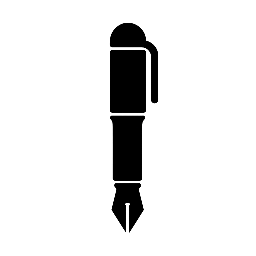Case Study
This assignment is aimed at examining an ethical situation that you may have experienced or know about related to your field of work. Create your own ethical case study based on your experiences and readings. Choose a topic or issue related to your professional field of work or profession. Consider topics related to the organizational work setting for this paper. In your paper, include the following:
· Introduction: research the literature on ethics and leadership and provide a definition and need for ethics in an organization:
· Rationale for the case study:
· Describe the reason for the case that you present ( Why is the topic relevant? How does it expand or contribute to a leader’s knowledge about ethics?). Document your comments with appropriate related references.
· Case study: Provide a narrative with the case study topic that you identified. Include the following:
· Setting: Briefly describe the setting
· Situation: Describe the situation.
· Impact: State how it affects the organization and who or what is impacted. State whether the situation affects people inside or outside the organization. If the situation is from your own organization, be sure to use pseudonyms to maintain confidentiality at all times.
· Ethical stance or position: clearly describe why the case/situation poses an ethical challenge for an organization.
· References: Use appropriate documentation to support your narrative.
· Handout: Provide a one-page handout summarizing the case. Include as an appendix to your paper.
Use this scenario and rewrite it according to the above outline.
The ethical dilemma of a hidden tool
As a prison maintenance technician, I was replacing a corroded pipe in a laundry room that is accessible to inmates. Following the facility’s strict security procedures, I conducted a thorough inventory of the tools before and after the job. The inventory was logged and verified by a correctional officer.
Later that day, while doing a final check of the work area, I found a small, heavy-duty screwdriver that was accidentally left behind, wedged tightly in a crevice behind a washing machine. I was alone, and no inmates were in the laundry room at the moment.
I was faced with a serious ethical choice with multiple conflicting duties:
· Duty to security and safety: I knew that losing track of a tool, especially one that could be used as a weapon, was a severe security breach that puts staff and other inmates at risk. Reporting the incident would ensure that it was documented and all relevant procedures were reviewed to prevent future occurrences.
· Duty to personal integrity: Admitting to the mistake meant facing disciplinary action, potential job loss, or being labeled unreliable in a high-security environment. As the technician, I could simply re-secure the tool and say nothing, hoping no one ever finds out.
· Duty to procedure: The official tool inventory has already been signed and recorded as correct, so reporting the finding would require backtracking and potentially implicate the supervising officer as well.
Possible courses of action and their ethical considerations
Report the missing tool immediately.
· Ethical justification: Prioritizes the safety and security of the facility and its personnel. It is the honest and transparent course of action, upholding professional integrity and the strict codes of conduct required in a correctional environment.
· Consequences: The technician would face discipline, which could range from a verbal warning to termination. It could also lead to additional security checks and a review of protocols.
Re-secure the tool and say nothing.
· Ethical justification: Avoids personal and professional repercussions. From a narrow, self-interested perspective, this might seem like the “right” choice to preserve one’s career.
· Consequences: This action is a severe breach of professional conduct and potentially criminal negligence. If the tool is later found or used by an inmate, the technician could be held responsible for any harm caused. It also creates a personal liability and the constant anxiety of being found out.
The resolution
The most ethical choice for me was to report the incident immediately to my supervisor, despite the personal consequences. The risk to human life and the security of the facility outweighs any concerns about career repercussions. Many correctional facilities provide ethics training to help employees handle these exact situations. This type of training emphasizes the importance of safety and accountability in high-risk environments.
Would you like to discuss this project or get it done?
Reach out on WHATSapp at +1 (240) 389-5520
Or
Place an order on our website for quick help
Guarantees
A+ Paper
Timely Delivery
Zero Plagiarism
Zero AI


Leave a Reply